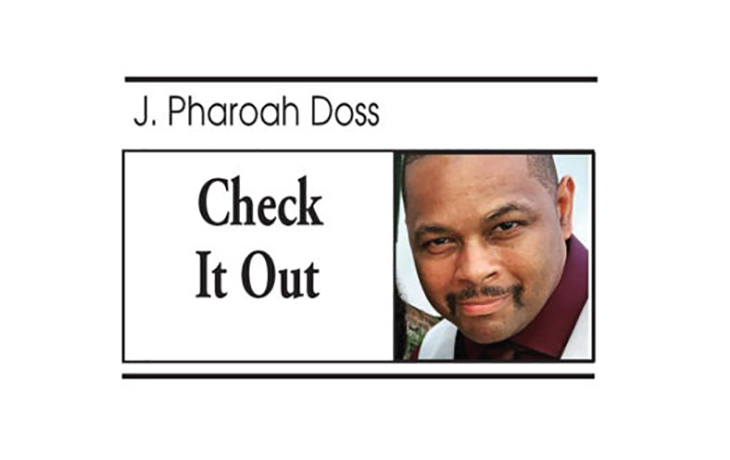We are all familiar with that pivotal moment when Pilate asked Christ the most fundamental question for enlightened people: what is truth? But the most essential question for any functioning society is, “What is justice?”
Every century after Christ, intellectuals improved on past notions of justice to make them more appropriate to the current day. In the previous century, academics and activists popularized the term “social justice.” Pastors across America preached the importance of “social justice,” but at a pivotal point in the 21st century, Pastor Voddie T. Baucham Jr. asked the church, “What is ‘social justice’?”
He actually said if “social justice” is equivalent to justice, and injustice is considered sin, and since God demands justice, then the church should focus on “social justice.” However, there was one problem: “social justice” and “real justice” are incompatible.
Baucham admitted that those who use the term “social justice” have good intentions, but it does not simply mean promoting a fairer society, as they assume.
“Social justice” is also known as “distributive justice,” and its proponents believe it is the solution to the societal strife described by conflict theorists.
According to conflict theory, the natural order of society is a fight for power and resources between different social groups, resulting in an unjust society in which dominant groups maintain control by exploiting marginalized groups. The dominant groups, or exploiters, are identified as White, male, heterosexual, cisgender, able-bodied, native-born, and Christian, whereas the non-dominant groups, or oppressed, differ from those stated.
If proponents of “social justice” identify Christianity as a primary source of exploitation and injustice in America, the mission of “social justice” contradicts that of the church.
What exactly is the mission of “social justice”?
According to Baucham, “social justice” is the state redistributing resources from those who have unjustly obtained them to those who justly deserve them. “Social justice” prioritizes equal results for marginalized groups over equal opportunity and equal protection under the law for individuals. Thus, “social justice” contradicts the Declaration of Independence, the United States Constitution, and “real justice.”
In his 2021 book Fault Lines: The Social Justice Movement and Evangelicalism’s Looming Catastrophe, Baucham wrote, “Real justice requires truth.”
Now we’re back to Pilate’s question.
For centuries, philosophers disputed whether truth was objective or subjective, but the twenty-first century marks the first time the answer to Pilate’s question has become irrelevant. In Ralph Keyes’s 2004 book The Post-Truth Era, he stated that in contemporary life we don’t have truth and lies but a third category of ambiguous statements that are not exactly the truth but fall just short of a lie.
In other words, truth has been replaced by believability.
The Oxford Dictionary named “post-truth” the word of the year in 2016. It was defined as relating to circumstances in which emotional appeals and personal belief have a greater influence on public opinion than objective facts.
If “real justice” necessitates truth and we live in a post-truth era, then “social justice” can also be described as post-justice; hence, to avoid the era of post-justice, Baucham believed we must reinforce the origin of “real justice.”
He wrote, “Our pursuit of justice must also be characterized by a pursuit of truth … My goal when I hear about injustices is to keep in mind that I am biased. As a single witness with limited information, I carry a significant amount of personal baggage. Therefore, when I am evaluating people’s testimonies and pleas, and when people are shouting [justice for so-and-so], I always want to bear in mind the words of John 7:51: ‘Does our law judge a man without first giving him a hearing and learning what he does?’ I also want to remember that ‘the one who states his case first seems right, until the other comes and examines him’ (Proverbs 18:17), which is why ‘if one gives an answer before he hears, it is his folly and shame.” (Proverbs 18:13)”
Baucham continued, “Today, people are rioting and demanding justice before knowing the facts, and in most cases, without ever considering the aforementioned principles.”
Unfortunately, Pastor Voddie T. Baucham Jr. died last month at the age of 56.
He was born in Los Angeles, became an ordained Baptist minister as a sophomore in college, and earned degrees from Houston Christian University, Southwestern Baptist Theological Seminary, and Southeastern Baptist Theological Seminary. Baucham pastored congregations in Texas for several years before relocating to Zambia in 2015 to help launch Africa Christian University. He spent nine years as the university’s founding dean and divinity school lecturer before returning to the United States to become president of Founders Seminary in Cape Coral, Florida.
Baucham was fond of quoting Nobel Prize-winning economist Friedrich Hayek, who stated that the term “social justice” is often used to disguise the desire for unequal treatment, and the greatest service one could render to society was to make the speakers and writers of “social justice” ashamed of the term.
Hayek was ignored.
Hopefully, Baucham was heard; if not, it’s a shame.

